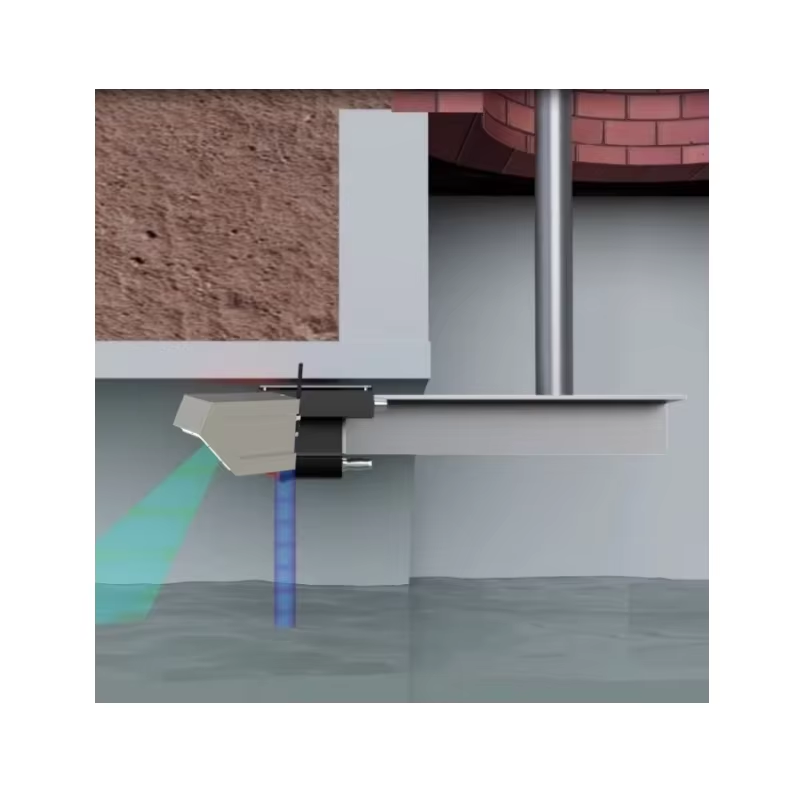Date: January 14, 2025
Location: Jakarta, Indonesia
In a remarkable advancement in water management technology, the municipality of Bandung has successfully implemented hydrographic radar velocity flow level meters to monitor and manage water resources more effectively. This innovative technology promises to enhance flood management, improve irrigation practices, and ensure sustainable water usage across the region.
Addressing Long-standing Challenges
For years, Bandung faced significant challenges related to water management, including seasonal flooding, inefficient irrigation systems, and water quality monitoring. The municipality, located near the Citarum River—which has been plagued by pollution and fluctuating water levels—recognized the need for a modern solution to these persistent issues.
“Traditional water monitoring methods often fell short in accuracy and responsiveness,” said Dr. Ratna Sari, the head of Bandung’s Water Resources Department. “By incorporating hydrographic radar technology, we can now gather real-time data on river flow velocities and water levels, allowing us to react swiftly to changing conditions.”
How Hydrographic Radar Works
The newly deployed hydrographic radar velocity flow level meters utilize advanced radar technology to gauge water levels and flow rates without physical contact. By emitting radar waves, the system can detect water surface movements and calculate velocity with astonishing accuracy. This non-invasive approach minimizes environmental disruption and provides continuous monitoring.
“The radar technology is highly effective in challenging environments, such as urban areas with fluctuating water levels,” explained Agus Setiawan, a lead engineer overseeing the project. “Our system can function even in conditions like heavy rains, maintaining reliability and providing crucial insights.”
Benefits for Flood Management and Agriculture
With the initial deployment of over 20 radar flow level meters strategically placed throughout the municipality, Bandung is positioned to respond proactively to flooding emergencies. The real-time data allows local authorities to analyze potential flooding risks and issue timely alerts to residents, ultimately saving lives and property.
Additionally, the data collected contributes significantly to agricultural practices. With precise measurements of water levels and flow rates, farmers can optimize irrigation schedules, reducing water waste while enhancing crop yields. This dual benefit serves both the city’s residents and its agricultural community, promoting sustainable practices and resilience amid climate change.
A Commitment to Sustainability
Mayor Tita Aditya has championed the implementation of this technology, emphasizing its importance in achieving the city’s sustainability goals. “Our commitment to innovative solutions is essential for addressing the pressing water management challenges we face,” she stated during a recent press conference. “Hydrographic radar technology is not just a tool; it’s a key component in our vision for a sustainable future.”
The municipality plans to expand the hydrographic monitoring network, integrating it with other smart city initiatives, including real-time weather forecasting and urban planning. This integrated approach will provide comprehensive insights into the Region’s hydro-environmental dynamics, empowering local government and stakeholders to make informed decisions.
The Future of Water Management in Indonesia
Bandung’s successful implementation of hydrographic radar velocity flow level meters is a significant step forward in Indonesia’s ongoing efforts to modernize water management practices. As climate change intensifies the challenges facing municipalities across the country, innovative solutions like these are crucial for building resilience and ensuring the sustainable use of natural resources.
The project has attracted attention from other municipalities, with local officials from various regions expressing interest in adopting similar technologies to address their own water management challenges. The potential ripple effects of Bandung’s initiative could lead to widespread improvements in water resource management throughout Indonesia.
As the municipality continues to refine its usage of hydrographic radar technology, it stands as a beacon of hope for effective water management solutions in urban areas—a vital endeavor as Indonesia navigates the complexities of modern environmental challenges.
For more radar water level meter information,
please contact Honde Technology Co., LTD.
Email: info@hondetech.com
Company website: www.hondetechco.com
Post time: Jan-14-2025


